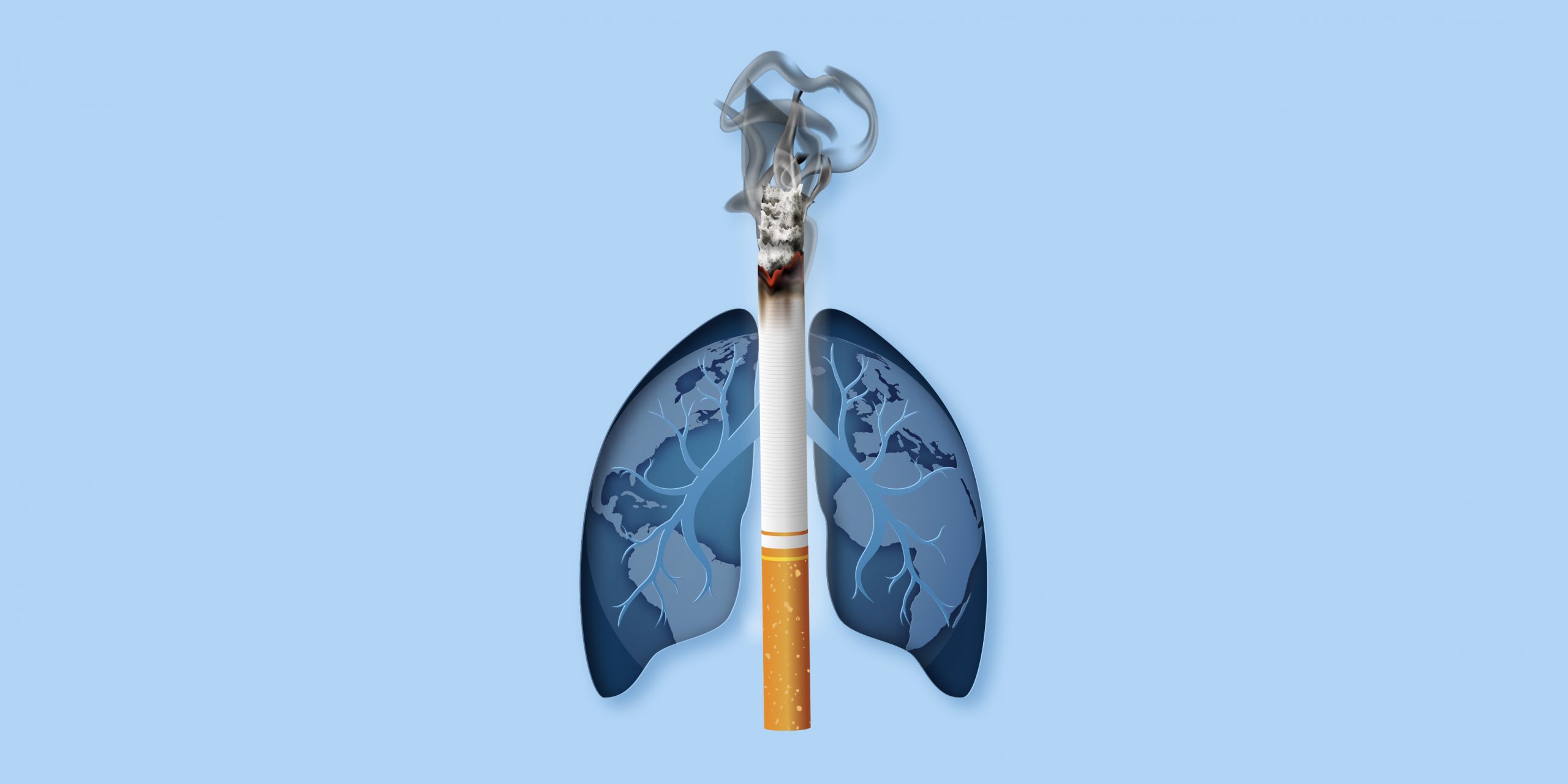How Does Smoking Affect Diabetes?

How Does Smoking Affect Diabetes?
Diabetes is a major condition that elevates the glucose levels in your bloodstream, causing various negative consequences. Additionally, diabetes can cause vision problems that may affect your ability to see clearly. In the worst cases, you may have to amputate the finger or the whole arm.
Diabetes doesn’t happen for a single reason. It is associated with lifestyle factors – poor diet and lack of physical activity, most of which are correctable. Now, can smoking lead to diabetes?
Smoking is one lifestyle factor that induces diabetes, even in otherwise healthy individuals.
Smokers have an increased risk of developing type 2 diabetes than non-smoking individuals. What exactly happens inside your body when you smoke?
The chemical components in cigarettes cause injury and inflammation in your body cells. This oxidative stress tends to increase the risk of developing diabetes. On the other hand, avid smokers are more likely to develop belly fat, increasing cortisol secretion.
Wait, this is not a happy hormone, where smokers ‘quoted’ to feel refreshed and tense-free after an episode. This harmful hormone causes insulin resistance, contributing to diabetes.
Is it True That Quitting Smoking Can Delay the Onset of Type 2 Diabetes?
Yes, quitting smoking can benefit your overall health by taking control of your blood sugar and preventing the onset of potential complications.
Once you stop smoking, inflammation in your body is reduced. Following a few weeks of incorporating these healthy habits, you will discover that your ideal blood sugar level is maintained. When your blood glucose levels are under control, you can also eliminate diabetes complications to improve your quality of life.
Risk Factors of Smoking in People with Diabetes
Now, most of you may be thinking about whether or not smoking raises blood sugar levels in people with diabetes. Yes, smoking not only causes fluctuation in blood sugar levels in existing diabetes but also complicates the condition.
Your family doctor would have pointed out that when you smoke with diabetes, you also risk developing hypertension and increased cholesterol levels. Let us contemplate some complications!
1) Smoking Can Cause Spikes in Your Blood Sugar Level
Smoking with diabetes will make it hard to keep the sugar level in check. It can increase insulin resistance leading to prediabetes or diabetes.
To know your chances of Diabetes reversal, take the Diabetes Reversal TestDiabetes Reversal
Calculator
2) Smoking Can Cause Respiratory Issues
We all know smoking affects your lungs directly. Now, let’s consider that you are a chain smoker and have diabetes. In such a case, addiction to smoking can cause lung infection or chronic inflammatory conditions. Can it get worse?
3) Smoking Affects Your Eyes
When you have high blood sugar, you risk developing eye diseases like cataracts or glaucoma. If you accompany it with the habit of smoking, it will accelerate the onset of diabetic retinopathy and may even cause complete blindness.
4) Smoking Leads to Hypertension, Heart Disease and Increased cholesterol
Smoking harms your cardiovascular system by introducing harmful chemicals into your bloodstream, which damage your blood vessels and can cause them to narrow. This narrowing increases blood pressure (hypertension) and forces your heart to work harder.
Furthermore, smoking alters the balance of your cholesterol, increasing the ‘bad’ LDL cholesterol and reducing the ‘good’ HDL cholesterol. These changes increase the risk of heart disease and contribute to the buildup of plaque in your arteries (atherosclerosis).
How to Quit Smoking?
Now that you have joined the dots between smoking and diabetes, it is time to take the next step to healing over time. Making the healthy transition from smoking is not an easy task. However, never quit quitting. Are you trying to quit smoking for good? Here are some tips to take it one day at a time.
1) Consult With a Specialist
Medical professionals or psychologists will offer recommendations on managing the condition and allow you to learn more about the effects of quitting smoking, including a healthy appetite, better mood, and ideal weight management.
Depending on your condition, they will suggest nicotine replacement therapy to help you strike out the use of tobacco in your life.
2) Talk to family/ friends for support
If you want to quit smoking, you have to change your lifestyle. Friends and family can help you by encouraging and supporting you. Having someone to talk or listen to will remind you how far you have come, driving you towards the goal.
3) Drink Plenty of Water
Drinking plenty of water will help you stay hydrated but also aid in flushing out the nicotine in your system, among other toxic elements. No matter what, staying hydrated is a critical aspect of diabetes management for a healthy blood sugar level.
4) Munching on Healthy Snacking is the Way to Go
When you crave a smoke, drink a glass of water and choose healthy snack options. However, it is important to check your snack option. Choose the one with a low-glycemic index value, like cucumber sticks, or a small cup of plain low-fat yoghurt.
5) Make Time for Exercise in Your Schedule
When you sort out a specific period for an exercise regime, it will aid in stabilising the blood glucose level and improving your mood. The best part? It will also distract you from your unhealthy smoking time.
6) Revive by Relaxing
Managing diabetes and steering away from smoking is more difficult than you think and stressful. However, to de-stress yourself, opt for exercise, music, self-massage, and meditation practices.
7) Repeat and Refocus through a Hobby
When you have a slip-up in your rehabilitation program, stay calm and don’t be hard on yourself. Move on and implement other techniques to counteract the cravings for smoking by distracting yourself.
You can take up a hobby or any recreational activity to keep your mind and body active throughout the day, without the distraction of smoking.
8) Avoid Situations that Can Trigger Inclination Towards Smoking
Quitting smoking can be a challenging task. However, you can accomplish it if you can avoid situations that can trigger the urge to smoke. You must avoid spending time with smokers. Drinking alcohol can make it harder to resist the urge to smoke. Hence, alcohol consumption must be avoided when you are trying to quit smoking.
Besides these, it is also important to have strategies to manage stress. Rather than turning to smoking during stressful situations, you must try out activities such as yoga or meditation, going out for walks with friends or engaging in hobbies that you find relaxing.
REVERSED Diabetes in 3 months


5.7%
Happy members
EMI
Guarantee
4.8/5
Diabetes Prime Program
FitterTake
Overcoming the challenge of smoking can be a tough journey. However, with commitment, knowledge, and the right support, it is entirely achievable.
As a leading Diabetes Management company, we’ve witnessed numerous instances where smoking has exacerbated our members’ diabetes conditions. Conversely, we’ve also seen the transformative impact that quitting smoking can have on their health.
Our comprehensive Diabetes Care program provides you with a supportive team of nutritionists, physiotherapists, and psychologists, all dedicated to guiding you on your path to better diabetes management. This includes providing helpful strategies and tips for quitting smoking.
Reach out to us to learn how this program can benefit you or a loved one in managing diabetes and making the life-changing decision to quit smoking. We’re here to support you on this journey towards improved health and wellness.
This blog provides general information for educational and informational purposes only and shouldn't be seen as professional advice.




















